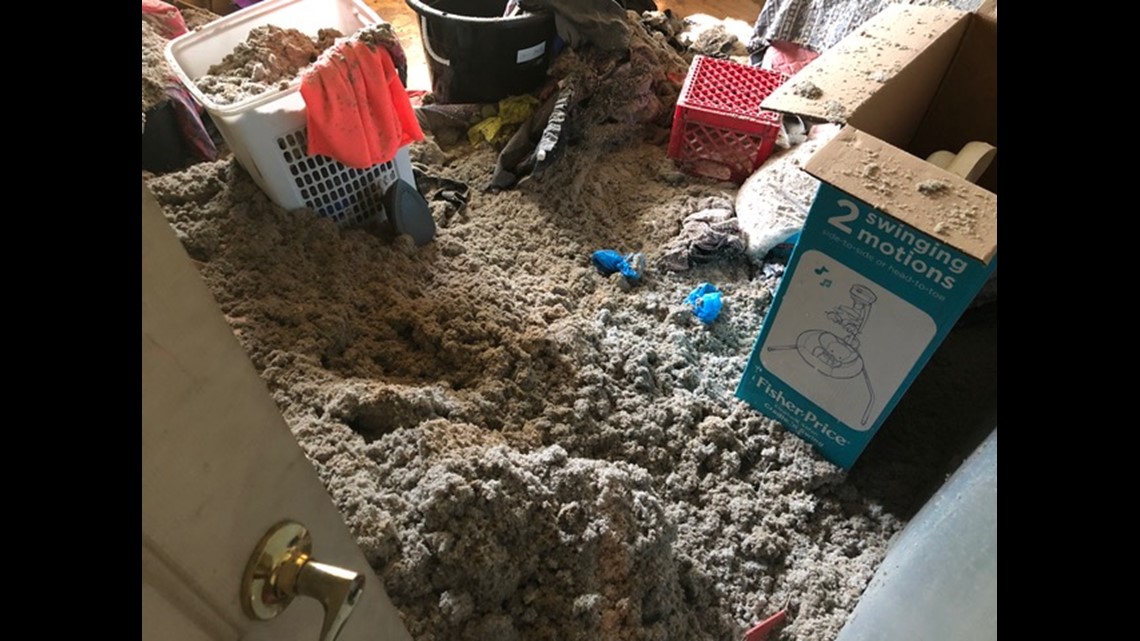It's been almost 90 days since a housing explosion rocked John Hargrave's neighborhood. The blast badly damaged his home just across the street.
"You can see my [front] door is off the hinge," he said. "Right there, [the explosion] blew my door up. You come in, you can smell the mold when you come in the house."
In one bedroom, the door can't open all the way because the ceiling has caved in. Insulation blankets the floor more than two feet in some spots. Hargrave says mold can be seen on the back wall.


"When it rains that water comes straight through that window because that window was not sealed," he said.
At the time of the explosion, Hargrave didn't have homeowner's insurance. He says the insurance company for the property that exploded, owned by the Columbus Metropolitan Housing Authority (CMHA), told him to assess the damage and it would be addressed after the investigation.
Last week, he received a letter saying CMHA's insurance would not be paying a dime.
The claim says "the explosion was caused by the unforeseeable criminal activity of Marcus Taylor." Taylor, they say in the document, admitted to attempting to steal copper at the vacant building while it was undergoing extensive renovations and, while doing so, hit a gas line. The claim also says "more than reasonable efforts were made to prevent burglary and theft" by locking doors and windows and placing a 2X4 board on the floor at the back door of the building. The claim says Columbus Police officers were hired to patrol the area, looking for break-ins and other illegal activity. The last check was in the afternoon and late evening on June 21, 2018, and there was no evidence of forced entry.
Hargrave says the building was anything but secure.
"There were two people inside the house when it exploded so how secure is that," Hargrave said. "That right there is pure evidence that the house wasn't secure at all."
According to a CMHA spokesperson, "a homeowner's policy would cover his damage in the same manner that CMHA's insurance policy covered CMHA's damaged properties because the housing authority was the victim of the explosion." The spokesperson also said "CMHA is not responsible for damage caused by the explosion to neighboring properties."
Hargrave believes he's a victim, too. He estimates more than $20,000 in damage.
"That was their property," he said. "They admitted to their property damaging my property. [I] don't understand what in the world is so hard about them just coming to fix what they did to my house."
He says he'll do what he can, while not giving up hope that help is on the way.
"Somehow, someway, they're going to fix my house," he said.
Hargrave says he did have homeowners insurance until 2012 when he was dropped because he owned an American Akita dog breed at the time. Since the June 22 explosion, Hargrave says he now has homeowner's insurance.

